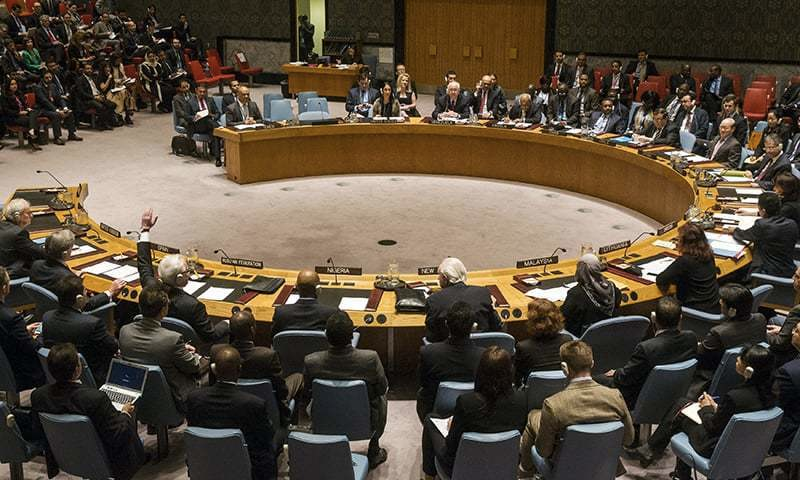Pakistan’s obsession with Kashmir
- MGMMTeam

- Nov 28, 2023
- 3 min read
Introduction:
In a recent session of the United Nations Security Council (UNSC), India and Pakistan engaged in a heated exchange over the long-standing Kashmir issue. The discussion, focusing on 'Maintenance of International Peace and Security: Promoting Sustaining Peace through Common Development,' took an unexpected turn when Pakistan's permanent representative, Munir Akram, mentioned Kashmir.
The UN Security Council Meeting:
The UNSC meeting, held on 21st November, was designed to address crucial matters related to international peace and security, with a particular emphasis on promoting sustainable peace through common development. However, the atmosphere became charged when Munir Akram raised the Kashmir issue, a move that was met with swift and immediate criticism from India.

Counselor R Madhu Sudan, representing India's Permanent Mission to the UN, dismissed Pakistan's remarks as "unwarranted and habitual." Sudan, in a concise statement, expressed India's refusal to dignify the comments with a detailed response, highlighting the nation's firm stance on the Kashmir matter.
Pakistan's Persistent Kashmir Agenda:
Pakistan's insistence on bringing up the Kashmir issue at international forums, including the UN, has been a consistent strategy to attract global attention. Despite these efforts, Pakistan has met with failure after failure in garnering widespread support for its stance on the region. India, on the other hand, maintains that Kashmir is an integral part of the country and consistently emphasizes this viewpoint on the international stage.
Escalation of Tensions:
The current tensions between India and Pakistan can be traced back to India's revocation of Article 370 in Jammu and Kashmir on August 5, 2019. This move, which sought to integrate the region more closely with the rest of the country, was met with strong opposition from Pakistan, leading to a diplomatic standoff.
It is important to note that the Kashmir issue has been a longstanding source of conflict between the two nations, both of which have a history of geopolitical tensions. Pakistan's use of terrorist proxies to destabilize the region has been a point of contention, and India's decision to revoke Article 370 curtailed these ambitions of Pakistan which has severely hit their operations in the region.
Impact of Article 370 Revocation:
The revocation of Article 370 had a significant impact on the security dynamics in the region. It limited Pakistan's ability to infiltrate terrorists into the Indian side of the Line of Control, a tactic that had been employed for decades to create unrest in the state. The move was a response to Pakistan-based terrorist organizations operating in the region, particularly exemplified by the Pulwama attack on February 14, 2019.
Pulwama Attack and Retaliatory Strikes:
The Pulwama attack, carried out by the Pakistan-based Jaish-e-Mohammed (JeM), resulted in the tragic death of 40 Indian soldiers. Twelve days later, the Indian Air Force conducted retaliatory airstrikes on a JeM facility in Balakot, located in the Khyber Pakhtunkhwa region of Pakistan. The operation, codenamed 'Bandar,' marked a significant escalation in the conflict and heightened tensions between the two nuclear-armed neighbors.
India's Response at the UN:
During the recent UNSC debate, Pakistan's mention of Kashmir prompted a strong reaction from India. Counselor R. Madhu Sudan's succinct dismissal of Pakistan's comments reflects India's determination not to engage in what it perceives as unwarranted rhetoric.
The Historical Context:
To understand the gravity of the situation, one must consider the historical context of India-Pakistan relations, marked by territorial disputes and regional power struggles. The Kashmir issue, dating back to the partition of British India in 1947, has been a consistent flashpoint, resulting in multiple conflicts and wars between the two nations. Over the years, the Line of Control, established after the 1971 war, has become a heavily militarized and disputed border.
Conclusion:
The recent episode at the UN Security Council is yet another attempt by Pakistan to bring up Kashmir on the International stage while also diverting attention from the worsening situation inside Pakistan itself. As Kashmir moves forward in its eventual path to a complete integration with the rest of India, it is essential to continue thwarting Pakistani attempts at creating hurdles in this endeavor.




Comments